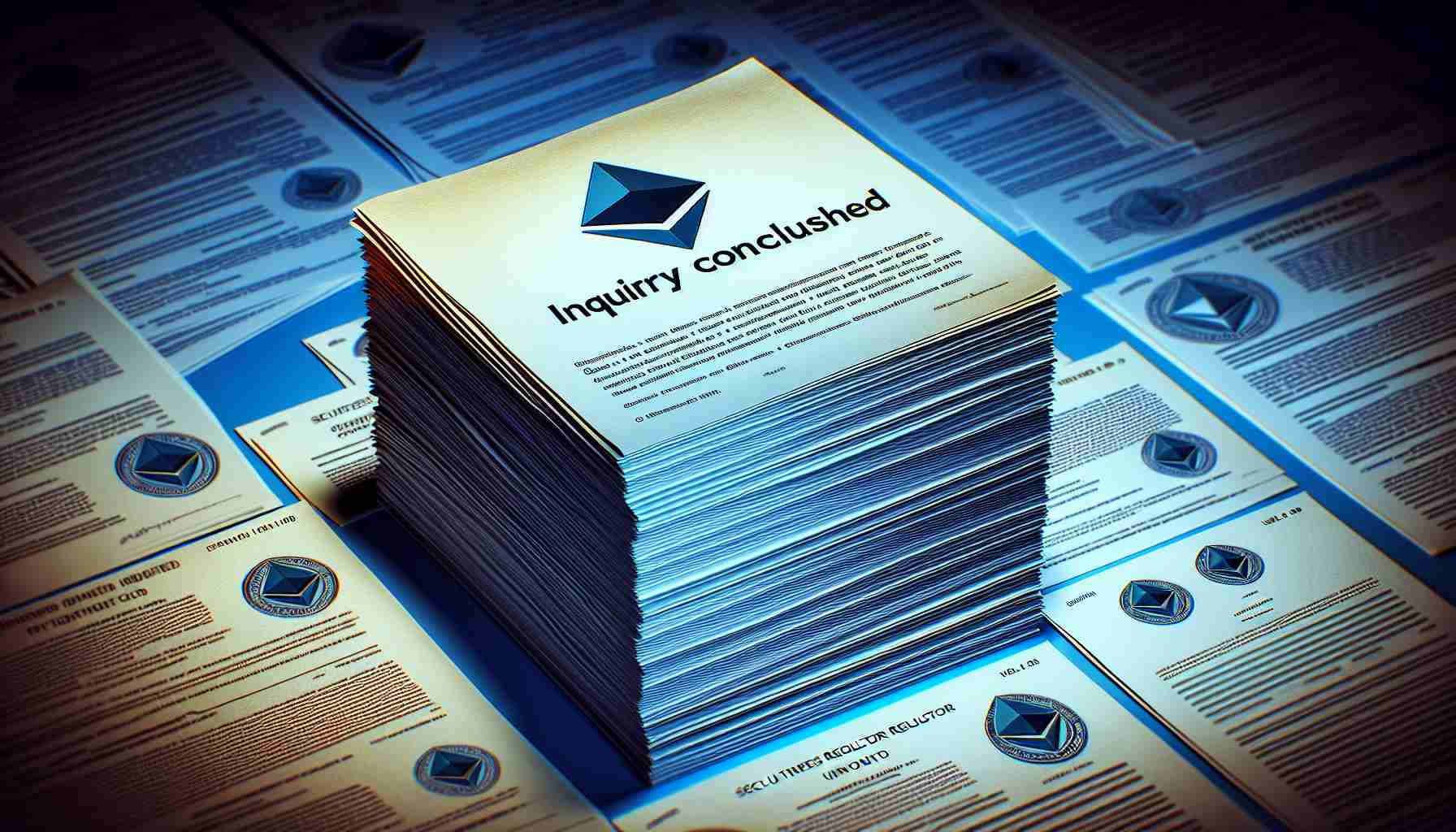Ethereum has proven resilient against regulatory challenges as the U.S. Securities and Exchange Commission (SEC) officially ends its scrutiny on the cryptocurrency’s upgraded version, Ethereum 2.0. Software company Consensys Inc., deeply embedded in the Ethereum space, expressed their relief and marked the occasion as a significant moment for those involved in Ethereum’s development.
The root of this regulatory suspense was the SEC’s examination of the nature of Ethereum’s past token sales, specifically scrutinizing whether they could be classified as securities transactions. This investigation has taken place despite Ethereum-based exchange-traded funds (ETFs) being granted approval under the categorization of ETH as a commodity.
Ethereum enthusiasts and participants are savoring what is perceived as a clear victory, given the SEC’s conclusion and its intention to forego any enforcement actions. The importance of this outcome is further underscored within the crypto community as it contrasts against the ongoing dilemma Ripple is facing with the regulator.
The difference in the SEC’s treatment between Ethereum and Ripple has reached a boiling point within the XRP community, raising debates on consistency and fairness in regulation. For Ripple, the lawsuit it entered with the SEC back in 2020 poses questions as to whether XRP’s sales are securities transactions.
Recent court rulings have both favored and challenged Ripple’s position, with some sales deemed not securities while others breached legal boundaries. A resolution for Ripple is anticipated to come soon, though the possibility of an appeal hangs in the air.
The close of the Ethereum 2.0 inquiry heartens many proponents of cryptocurrencies who seek clear regulatory frameworks within the rapidly evolving digital asset landscape.
Key Questions and Answers:
1. What was the SEC investigating with regard to Ethereum 2.0?
The SEC was examining whether the token sales associated with Ethereum, particularly in its progression toward Ethereum 2.0, could be classified as securities transactions.
2. Why is the outcome of the investigation significant?
The SEC’s decision not to enforce regulatory action is significant as it provides a degree of legal clarity and validation for Ethereum, potentially influencing the wider regulatory approach to cryptocurrencies.
3. How does the SEC’s approach to Ethereum contrast with Ripple’s situation?
While Ethereum 2.0 has escaped enforcement action, Ripple is still engaged in a legal battle with the SEC, which has cast doubt on whether XRP sales are considered securities transactions.
Challenges and Controversies:
– Regulatory Consistency: The cryptocurrency community is concerned about the apparent lack of consistency in regulatory enforcement and classification between different cryptocurrencies, as evidenced by the disparate treatment of Ethereum and Ripple by the SEC.
– Legal Classification: A major challenge in regulating cryptocurrencies is determining their legal definition, such as whether they are commodities, securities, or an entirely new asset class, which affects how they are regulated.
– International Considerations: Cryptocurrency is a global phenomenon, but regulations vary widely by country. This creates complex legal landscapes for projects like Ethereum 2.0 that have international user bases and developers.
Advantages and Disadvantages:
– Advantages:
– Legal Clarity: The SEC’s conclusion provides more legal clarity to market participants, which can encourage the development and adoption of Ethereum 2.0.
– Innovation: With less regulatory ambiguity, developers might feel more comfortable investing resources into new projects on the Ethereum network.
– Disadvantages:
– Future Uncertainty: The lack of formal regulatory endorsement or clear guidelines can lead to future uncertainty, as the legal environment for cryptocurrencies can change rapidly.
– Precedent: The SEC’s stance might not necessarily set a precedent for the treatment of other cryptocurrencies, which could be regulated under different criteria.
To learn more about Ethereum and follow the latest developments in real-time, you can visit Ethereum’s official website: Ethereum. Please note that it is important to always verify the accuracy of URLs to ensure they are legitimate and secure before clicking on them or sharing them. Unfortunately, without the actual article’s context or specific details, it’s not possible to guarantee the relevance and correctness of additional links beyond Ethereum’s main domain.



